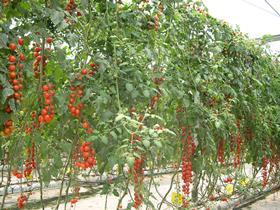
Peers in the House of Lords have raised concerns over a “striking contrast” between the government and the food industry’s perspective on the impact of Brexit.
Their report released today, titled “Brexit: food prices and availability” is the second Lord’s inquiry into Brexit’s agricultural impact, affirming that price rises are likely, along with a real danger of border delays and greater food insecurity for lower-income households.
The Lord's EU Committee also revealed they “do not believe the UK’s ports and airports will be able to cope with the additional workload that new checks will create”.
They joined the wider food industry in demanding a continuation of tariff-free imports from the EU, as well as frictionless movement of fresh produce.
The 39-page report stated: “The government’s belief that most [trade agreements] can be simply and easily rolled over is not shared by those who have given evidence to previous EU Committee inquiries.
“This contrast between government confidence and industry concerns is striking and reflects the tone of the evidence to this inquiry more broadly.
“The government may not be worried about the potential for Brexit to impact on the price and availability of food, but the representatives of the food and farming industry, importers, port authorities and consumer organisations were vocal in their concerns.”
Peers also suggested that Brexit could make one in five of British households more insecure, and struggling to afford fruit and vegetables in particular.
“Those who can afford it will be able to buy high-quality local produce. Those who cannot afford that option may well base their diets on cheaper, imported food, that witnesses were concerned could be produced to lower standards to keep costs down,” the Lords wrote.
The report urged the government to develop a “comprehensive food security policy” for the UK, “as a matter of priority”. They added that policymakers need to choose their priorities, whether food standards or food prices, as well as the capacity to feed ourselves.
Among the many concerns raised in the report, key issues included the need for long-term investment to reduce the number of staff required for UK food production, additional staffing at borders, and a government declaration on what customs requirements it would place on EU food imports.



